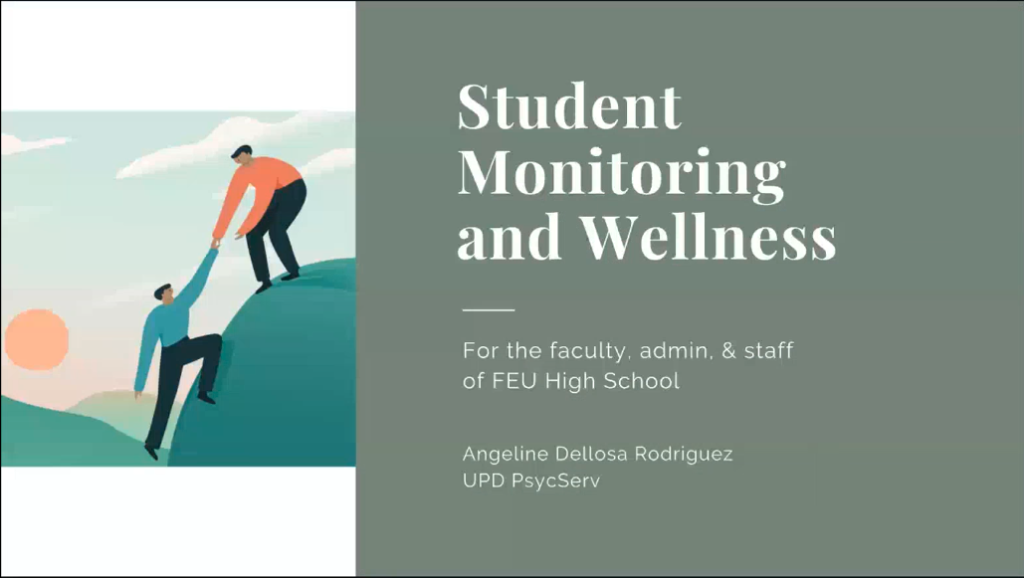Published: 2:44 pm August 23, 2021 | Updated: 2:47 pm August 23, 2021
Student wellness and well-being are important in educational institutions because schools, including teachers, play an important role in assisting students in prioritizing a healthy lifestyle and understanding the effects of their choices on their health and well-being.
Last July 13, 2021, the FEU HS Faculty had their INSET program about “Student Wellness and Monitoring”, spearheaded by Ms. Angeline Rodriguez.

The INSET is all about promoting student wellness and monitoring well-being of the students. According to the New Hampshire Department of Education, student wellness is the recognition by schools, districts, and educational professionals that there are many factors that impact a student’s academic attainment. It is an approach that focuses on supporting the child holistically. The dimensions of wellness include Emotional, Personal, Intellectual, Physical, Environmental, Occupational, and Social factors.
The teachers believe that students should have access to professional health and counseling services at the primary health care level. It is also involved with the prevention, early detection & treatment of all health & psychological conditions as well as the promotion of a balanced & healthy lifestyle. It provides psychosocial support & interventions to students presenting with personal, social, family and relationship challenges.
Student wellness and well-being are important in educational institutions because schools, including teachers, play an important role in assisting students in prioritizing a healthy lifestyle and understanding the effects of their choices on their health and well-being.
The program helped teachers understand the significance of monitoring student wellness. More than ever, the pandemic has caused a paradigm shift in how we live our lives; it has also impacted the teaching-learning continuum and emphasized the importance of self-care. The program reminded teachers that they are the pillars of student well-being. Every interaction they have with their students provides them with a glimpse into their lives. It is their responsibility to provide a safe, nurturing, and conducive environment for students and make decisions that promote wellness and well-being.
